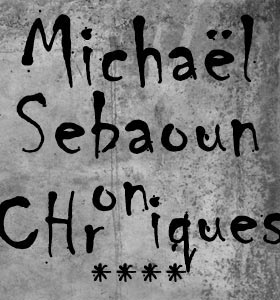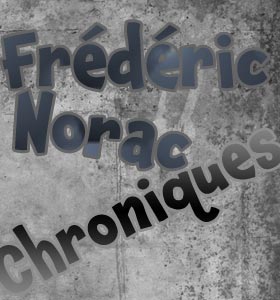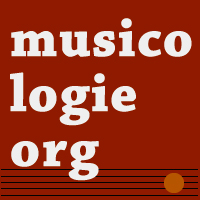BioSphere – TechnoSphere: Music and Sound Beyond the Human
May 15-17 2025, Salzburg
Mozarteum University Salzburg
Call for Contributions
Concept and organisation: Martin Ullrich (Hochschule für Musik Nürnberg) & Yvonne Wasserloos (Universität Mozarteum Salzburg)
Contemporary popular musics realize themselves in what has been called the technosphere. Major developments in musics, especially popular musics (from the Global North as well as from the Global South), have been caused and accelerated by digitalization, encompassing digital production, distribution and reception of music. Production and distribution have thus undergone a broad democratization process that has been enabled by the development and accessibility of inexpensive digital production tools and the establishment of streaming technology. The latter phenomenon, through the permanent storage of digital audio files in web-based platforms, has led to the change (or even disappearance?) of music canonization processes. Moreover, recycling and re-framing of preexistent music have dynamically increased through digitalization. Critical aspects of these developments include questions of copyright, the ethics of appropriation, and the dimensions and consequences of sampling- based de-contextualization and re-contextualization. And we have to ask how listening experiences and reception behavior change because of the ubiquity of streaming music. What does it mean for the development of musical taste? And does inflationary consumption of streamed musics lower the sensuality of musical experience?
However, musics in the Anthropocene can and should not be seen as a practice, behavior or product belonging exclusively to the technosphere. The severe ecological crises of the early 21st century, including climate change and biodiversity loss (the so-called sixth extinction), have reminded artists, scientists and scholars that earth systems play a central role and that technosphere and biosphere are not categorically separate, but can be seen as entangled domains (cf. Haraway 2016, Latour 2017).
The acceptance of these entanglements between technology and the organic world demands a new political behavior, a change in power hierarchies, and new ethical approaches to put anthropocentrism in question. This is obviously a challenge musicology shares with the humanities in general: Music and sound as emanations of Western democratic societies have traditionally been seen as uniquely human. However, several factors recently have contributed to the transformation of this view into a more integrated approach, emphasizing the inclusion of actors beyond the human. Among these contributing factors are digitalization, especially the rise of artificial intelligence, but also ecological crises like climate change and biodiversity loss (culminating in the ongoing sixth extinction).
Consequently, in the Anthropocene biosphere and technosphere are no longer categorically distinct. Co-creativity in music and sound extends to other biological species as well as to artificial actors. Recently, musicology has already developed concepts that take in account more-than-human settings, e.g. zoomusicology, ecomusicology, and AI music studies.
This conference aims to contribute to this ongoing development, and to put special emphasis on the ethical and political dimensions that come into play in regard of other-than-human creativity and aesthetics. Submissions from all musicological (sub-)disciplines are welcome, as well as from the music-related domains in neighboring scholarly and scientific disciplines and in interdisciplinary fields like human-animal studies, critical animal studies, critical plant studies, multispecies ethnography, and AI music studies.
Presentation formats:
Paper presentations (30 min. + 15 min. Q & A)
Poster presentations
Project presentations
Conference languages: English/German.
Deadline for proposals: March 15
Abstract: max. 300 words
CV: max. 200 words
To: Yvonne Wasserloos &Martin Ullrich
You will receive notification until April 1 2025.
We are planning to publish an edited volume (English/German, Vandenhoeck & Ruprecht) and ask for submission of the finished papers until 15 August 2025.
Selected literature
Braidotti, Rosi (2016). „The Critical Posthumanities; or, Is medianatures to Naturecultures as Zoe Is to bios?.“ In: Cultural Politics. Duke University Press 12 (3), S. 380–390.
Darling, Kate (2021). The New Breed: What Our History with Animals Reveals about Our Future with Machines. New York: Henry Holt and Company.
Donaldson, Sue (2020). „Animal Agora: Animal Citizens and the Democratic Challenge.“ In: Social Theory and Practice. Florida State University Department of Philosophy 46 (4), S. 709– 735, DOI: 10.5840/soctheorpract202061296.
Donaldson, Sue / Kymlicka, Will (2011). Zoopolis: A Political Theory of Animal Rights. Oxford/New York: Oxford University Press.
Donaldson, Sue / Kymlicka, Will (2013). Zoopolis: Eine politische Theorie der Tierrechte. Berlin: Suhrkamp Verlag.
Fielitz, Maik / Marcks, Holger (2020). Digitaler Faschismus. Die sozialen Medien als Motor des Rechtsextremismus. Berlin: Dudenverlag.
Haraway, Donna J. (2016). Staying with the Trouble: Making Kin in the Chthulucene. Durham: Duke University Press.
Harris, Jamie / Anthis, Jacy Reese (2021). „The Moral Consideration of Artificial Entities: A Literature Review.“ In: Science and Engineering Ethics. 27 (4), S. 53.
Henckmann, Wolfhart (2003). „Über die Grenzen der ‚Kunstverhältnisse.“ In: Ursula Franke / Josef Früchtl (Hg.), Kunst und Demokratie. Positionen zu Beginn des 21. Jahrhunderts. Hamburg: Meiner, S. 161–173.
Kleimann, Bernd (2003). „Elitismus und Betroffenheitskultur. Zur ethischen Valenz der Kunst.“ In: Ursula Franke / Josef Früchtl (Hg.), Kunst und Demokratie. Positionen zu Beginn des 21. Jahrhunderts. Hamburg: Meiner, S. 115–126.
Latour, Bruno (2017). Facing Gaia: Eight Lectures on the New Climatic Regime, Cambridge/Medford: Polity.
Marsden, Alan (2000). “Music, Intelligence and Artificiality.” In: Eduardo Reck Miranda (Hg.): Readings in Music and Artificial Intelligence. Amsterdam: Harwood, S. 15-28.
Miksche, Jobst (2009). „Digitale Technik. Die Demokratisierung der populären Musik?“ In: Daniela Wentz /André Wendler (Hg.): Die Medien und das Neue. Marburg: Schüren, S. 269– 282, DOI.
Miranda, Eduardo Reck (Hg.) (2000): Readings in Music and Artificial Intelligence. Amsterdam: Harwood.
Nida-Rümelin, Julian (2006). „Normative Bedingungen der Macht.“ In: Internationale Zeitschrift für Philosophie, 15, Heft 1, S. 85–101.
Seifert, Robert (2018). Popmusik in Zeiten der Digitalisierung: Veränderte Aneignung – veränderte Wertigkeit. Bielefeld: Transcript.
Ullrich, Martin / Trump, Sebastian (2022). „Sonic Collaborations between Humans, Non- Human Animals and Artificial Intelligences: Contemporary and Future Aesthetics in More- than-Human Worlds.“ In: Organised Sound. Cambridge University Press 28 (Issue 1: Socially Engaged Sound Practices, Part 2), S. 35–42, DOI.
Wasserloos, Yvonne (2021). „Soundtracks. Affektive Re-Inszenierung und Radikalisierung der Rechtsextremen durch Filmmusik und Fashwave.“ In: Sabine Mecking / Manuela Schwartz / Yvonne Wasserloos (Hg.): Rechtsextremismus – Musik und Medien. Göttingen: V&R unipress, S. 121–152.
Wasserloos, Yvonne (2023). „Zur Einleitung: Musik und Demokratie – Annäherungsversuche zwischen Ästhetik und Politik.“ In: Die Tonkunst. Magazin für klassische Musik und Musikwissenschaft (Themenheft „Musik und Demokratie“) 17, Heft 4, S. 424–429.




 À propos - contact |
S'abonner au bulletin
| Biographies de musiciens | Encyclopédie musicale | Articles et études | La petite bibliothèque | Analyses musicales | Nouveaux livres | Nouveaux disques | Agenda | Petites annonces | Téléchargements | Presse internationale | Colloques & conférences | Collaborations éditoriales | Soutenir musicologie.org.
À propos - contact |
S'abonner au bulletin
| Biographies de musiciens | Encyclopédie musicale | Articles et études | La petite bibliothèque | Analyses musicales | Nouveaux livres | Nouveaux disques | Agenda | Petites annonces | Téléchargements | Presse internationale | Colloques & conférences | Collaborations éditoriales | Soutenir musicologie.org.
Musicologie.org, 56 rue de la Fédération, 93100 Montreuil. ☎ 06 06 61 73 41.
ISNN 2269-9910.

Vendredi 18 Avril, 2025

